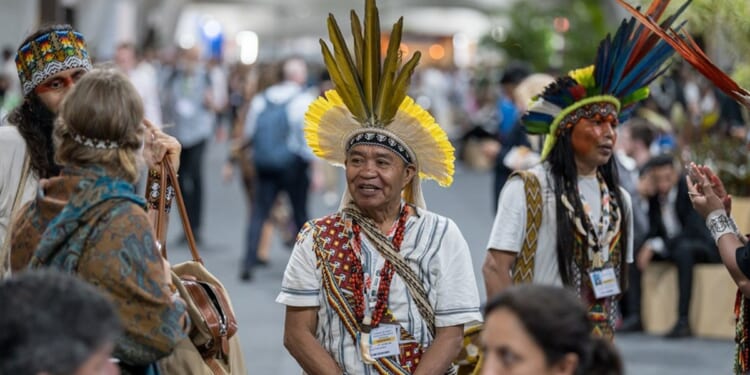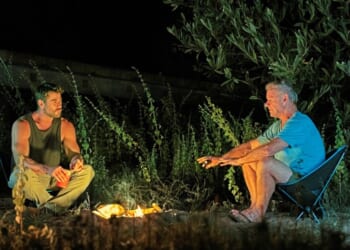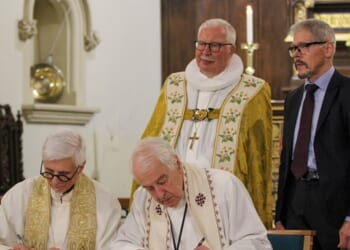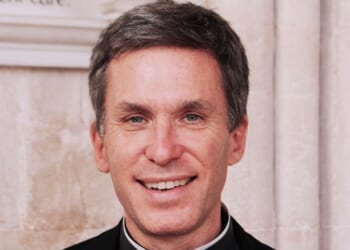INDIGENOUS protesters at the COP30 climate summit in Brazil clashed with UN security guards on Tuesday night after the group attempted to enter the conference “blue zone”, restricted to registered delegates.
The COP summits often elicit colourful protests from civil-society groups, but physical altercations are rare.
The group, many of them wearing traditional Indigenous garb, were protesting about the destruction of the rainforest and a lack of representation for forest-dwellers at the summit in the city of Belém, which is known as the gateway to the Amazon River.
For the past three years, COP has been hosted in countries with authoritarian governments: Azerbaijan, Dubai, and Egypt. This year, the Brazilian authorities have encouraged greater civil-society expression and the organisation of street protests as part of the meeting.
The summit has otherwise started smoothly this week. Countries have avoided a protracted debate — something that has dogged previous meetings — over what is to be included in the agenda. The Brazilian diplomats overseeing the talks are known to be some of the most skilled in the world, and countries have agreed to park contentious issues to get the negotiations under way.
A central question is whether the Brazilians can deliver a strong outcome that accelerates efforts to cut carbon emissions and delivers climate finance to nations that require it most.
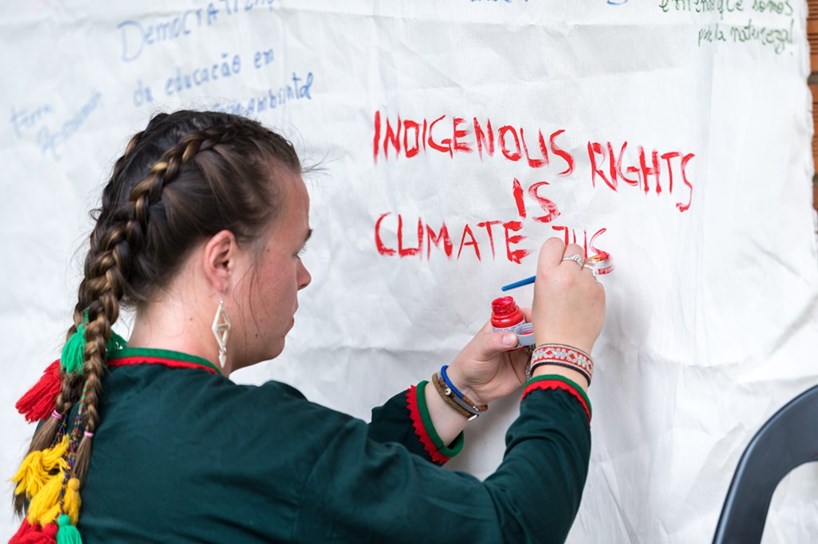 Albin HillertJulia Rensberg, of the Church of Sweden, writes “Indigenous rights is climate justice” on a Call to Action COP30 tapestry created during a gathering convened by the Interfaith Liaison Committee to the UN Framework Convention on Climate Change. It was held at the Evangelical Church of the Lutheran Confession in Belém, on Monday
Albin HillertJulia Rensberg, of the Church of Sweden, writes “Indigenous rights is climate justice” on a Call to Action COP30 tapestry created during a gathering convened by the Interfaith Liaison Committee to the UN Framework Convention on Climate Change. It was held at the Evangelical Church of the Lutheran Confession in Belém, on Monday
In his opening remarks, the President of Brazil, Luiz Inácio Lula da Silva, described the talks as the “COP of truth” and floated proposals of a roadmap for phasing down global fossil-fuel use. “Earth can no longer sustain the development model based on the intensive use of fossil fuels that has prevailed over the past 200 years,” he said.
On Wednesday morning, the International Energy Agency published its World Energy Outlook report for 2025, which showed that renewables were growing faster than any other energy source, and that global coal and oil demand would peak within the next five years. Another study suggested that China’s emissions had flattened or had been falling for the past 18 months, suggesting that it had hit its target of peak carbon-dioxide emissions ahead of schedule.
Christian Aid’s global advocacy lead, Mariana Paoli, said that countries should heed the warnings of the IEA, which says that the world’s energy supply does not require any new fossil-fuel projects.
“The IEA’s report confirms what many climate-vulnerable communities have known for years: the fossil-fuel era is ending, but governments are still dragging their feet when it comes to building the clean-energy systems that need to replace it,” she said. “Oil and coal are peaking, renewables are surging, yet public money continues to flow into new fossil-fuel projects that the IEA itself says we simply don’t need.”
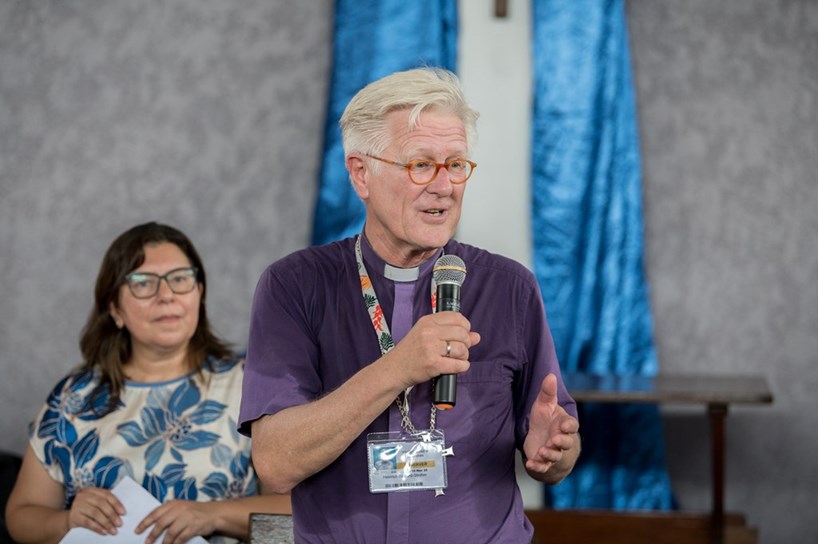 Albin HillertDr Heinrich Bedford-Strohm participates in an interfaith gathering convened by the Interfaith Liaison Committee to the UN Framework Convention on Climate Change. It was held at the Evangelical Church of the Lutheran Confession in Belém, Brazil, on Monday
Albin HillertDr Heinrich Bedford-Strohm participates in an interfaith gathering convened by the Interfaith Liaison Committee to the UN Framework Convention on Climate Change. It was held at the Evangelical Church of the Lutheran Confession in Belém, Brazil, on Monday
Elsewhere at the summit, church leaders were making the case for rich countries, as a means of making amends for the harm that their emissions have caused, to deliver public finance to help communities suffering from climate breakdown.
The Moderator of the World Council of Churches Central Committee, Dr Heinrich Bedford-Strohm, a bishop of the Evangelical Lutheran Church in Bavaria, addressed a press conference on Tuesday. Developed countries that claimed that they were unable to deliver climate finance were acting like a person who discarded a cigarette on their neighbour’s lawn and burnt down their house, he said.
“Would you be satisfied if [that person] said, ‘Oh, I did it, but I’m sorry, I won’t have enough money to pay for a new house for you?’ Anyone would say, ‘No, this is not fair,’ and it’s the same with climate change.”
Joe Ware is senior climate journalist at Christian Aid

